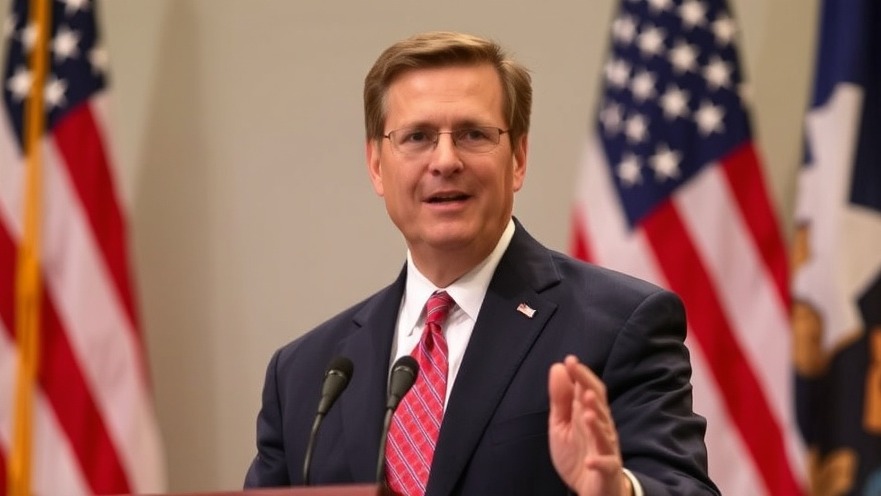
Trump's Religious Liberty Commission: A Strategic Move
Texas Lieutenant Governor Dan Patrick's new role as the chair of President Donald Trump’s commission on religious liberty signifies a strategic alliance between state and federal efforts aimed at promoting religious expression. Announced during the National Day of Prayer celebration at the White House, the commission seeks to address perceived threats to religious liberty while emphasizing the importance of religious pluralism.
Composition of the Commission: Who’s Who?
Joining Patrick and Trump are prominent figures like Ben Carson, former Secretary of Housing and Urban Development, who serves as vice-chair, and popular television personality Dr. Phil McGraw. Religious leaders, including Cardinal Timothy Dolan and Kelly Shackelford of the conservative legal organization First Liberty, add diverse perspectives to the group. This variety of voices highlights the multilayered approach to protecting religious rights across the nation.
Patrick’s Vision of Religious Liberty
In his remarks, Patrick described the United States as being 'birthed by prayer' and advocated for the preservation of religious liberty, asserting that the nation was founded on Judeo-Christian principles. This perception resonates with many Texans who value the integration of spirituality in public life. Policies he has championed, such as the display of the Ten Commandments in schools, demonstrate his commitment to intertwining faith and governance.
The Underlying Motivations: A Response to Current Events
Patrick's call to action reflects a broader response to what he and many of his allies view as growing anti-religious sentiment within current U.S. politics, particularly under the Biden administration. By emphasizing the need for increased awareness and protection of religious freedoms, the commission aims to mobilize support among like-minded individuals who are concerned about perceived government overreach into religious expression.
Exploring Diverse Perspectives on Religious Liberty
While the commission seeks to promote religious freedom, it also opens the floor for critical discussions surrounding the implications of such initiatives. Diverse perspectives come into play, particularly from groups advocating for secularism, who argue that blending church and state could marginalize those of different beliefs. Addressing these concerns within the commission's framework could serve to enhance relations among various faith communities.
Future Implications of the Commission's Work
The commission's work will likely influence legislative developments, particularly in Texas and similarly conservative regions. As the group is tasked with delivering strategies by July 4, 2026, future lawmakers may draw on its findings to shape policies that reinforce religious expression in states that prioritize such liberties.
Conclusion: Importance of Active Engagement
The newly formed commission under Dan Patrick's leadership symbolizes a commitment to restoring and promoting religious liberties across the United States. As citizens witness potential shifts in the balance between government and religious practices, the engagement of all parties involved remains critical. To stay informed on how these changes may impact Texas and beyond, it is essential to remain connected with local news sources committed to covering this evolving landscape of religious freedom.
 Add Element
Add Element  Add Row
Add Row 



Write A Comment